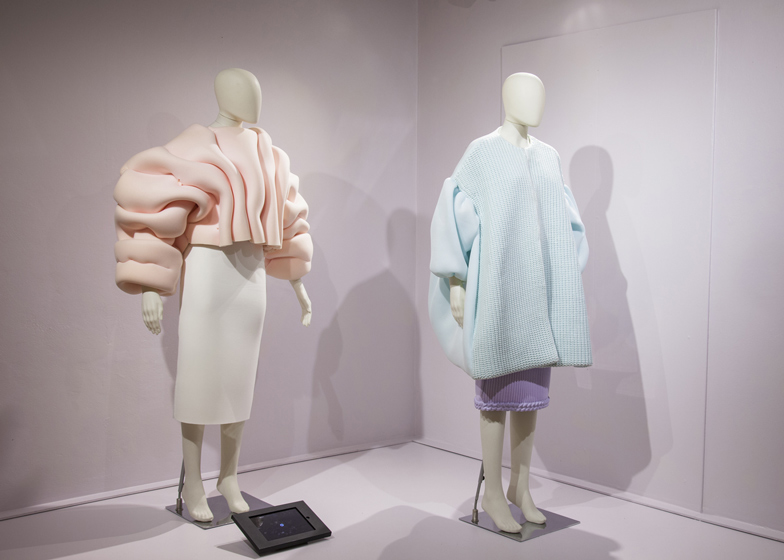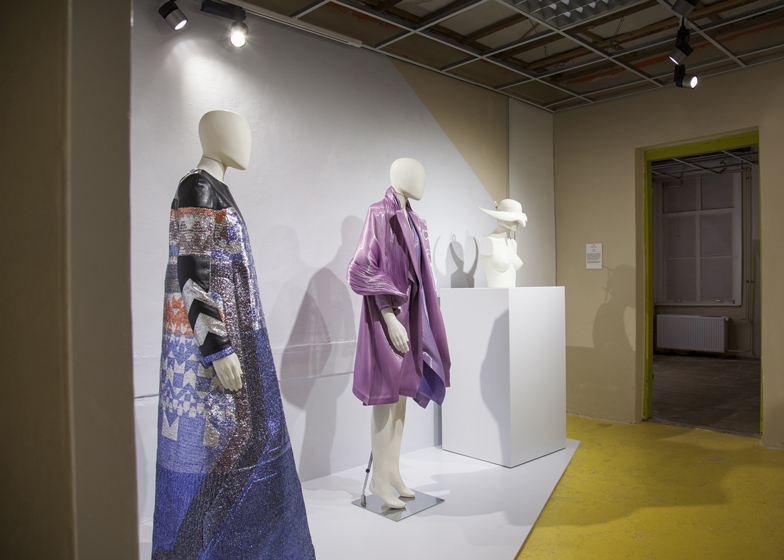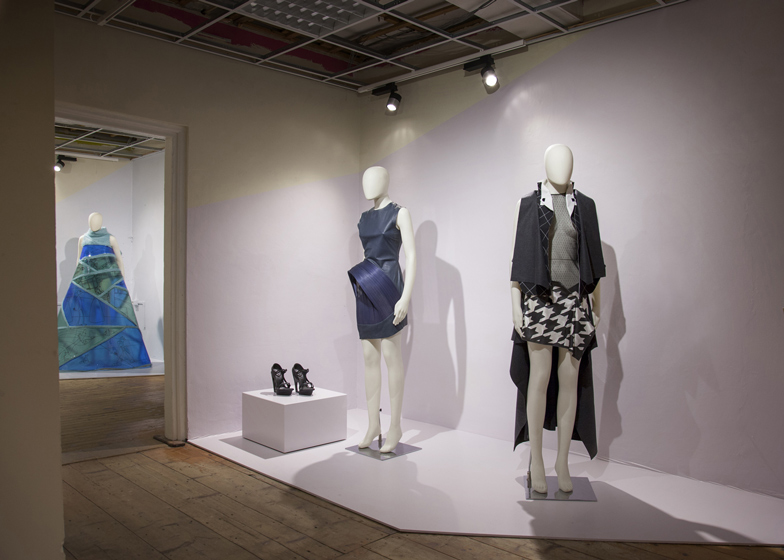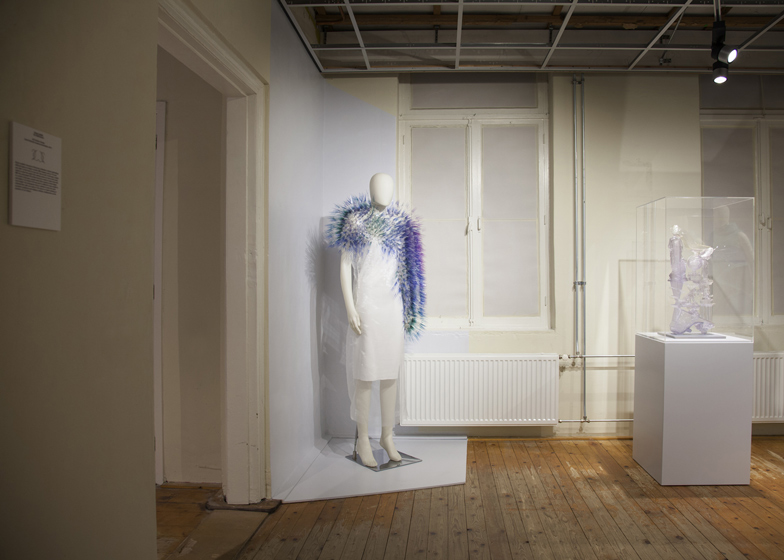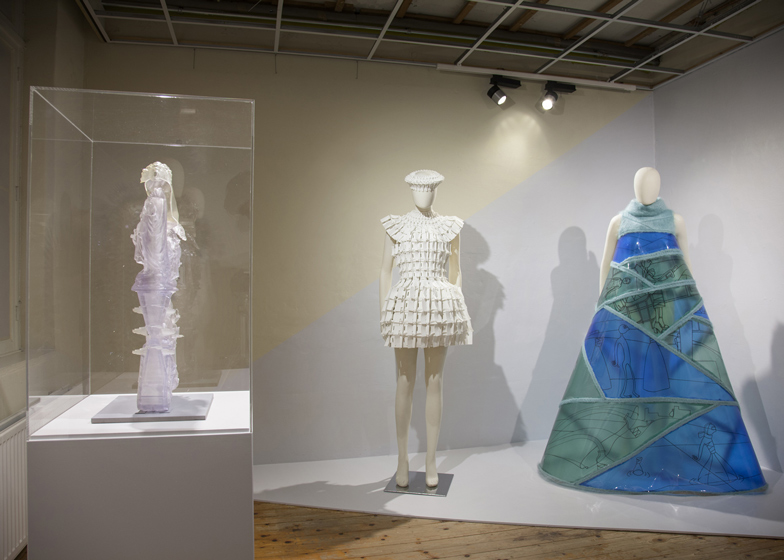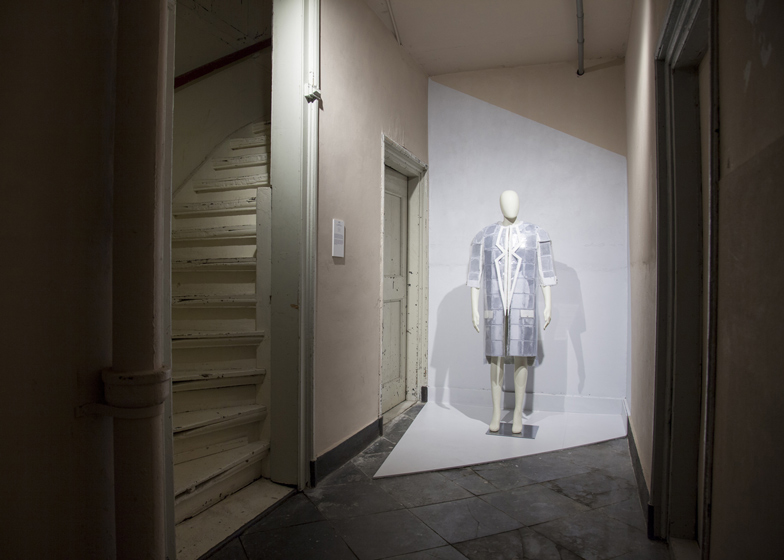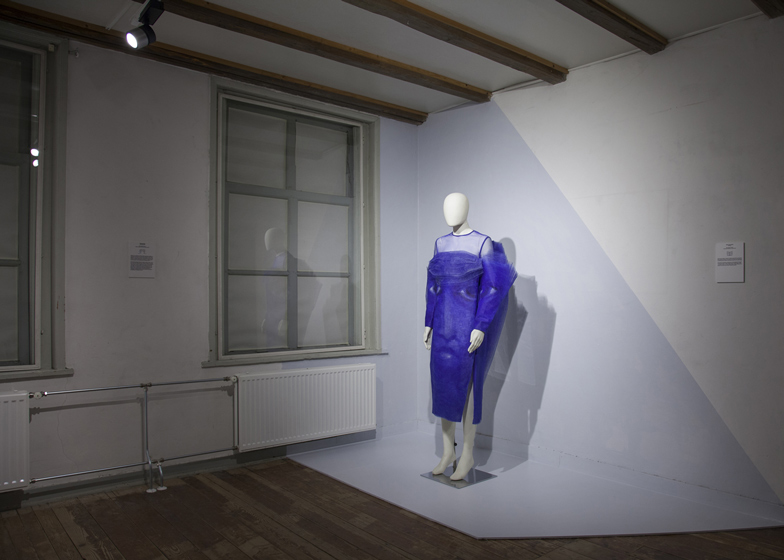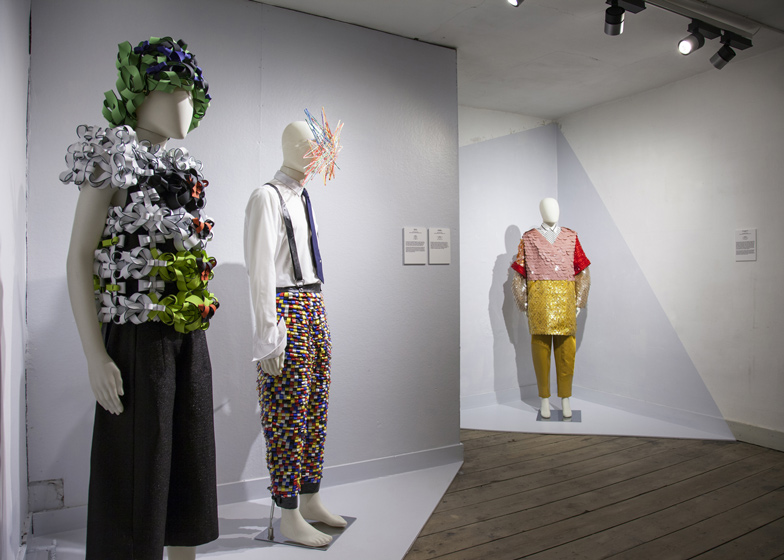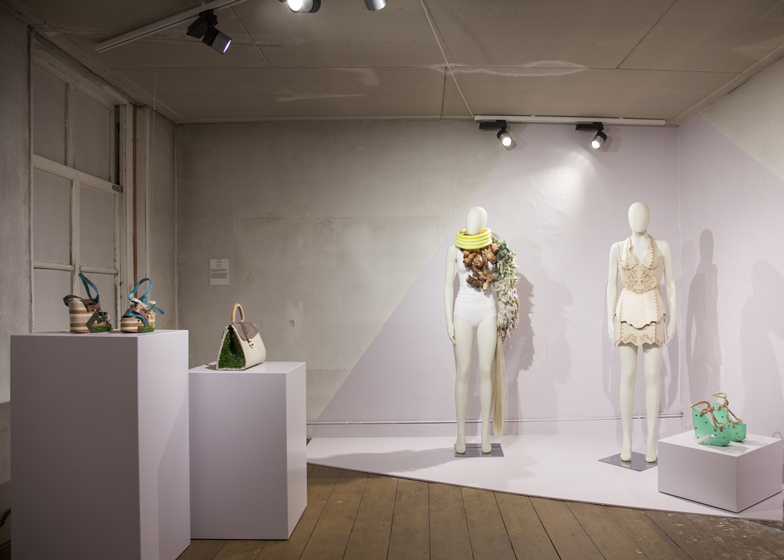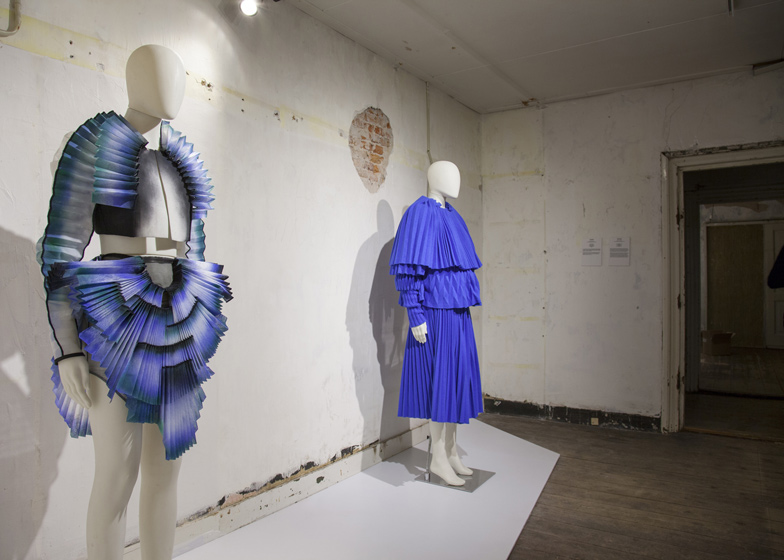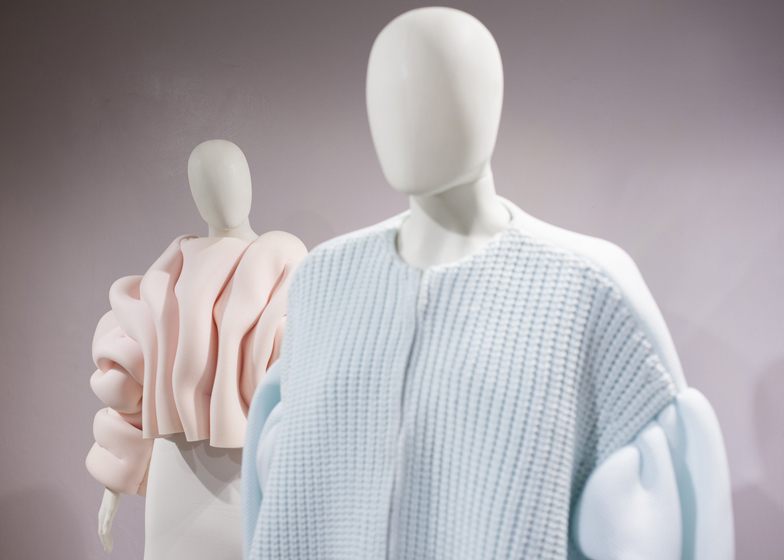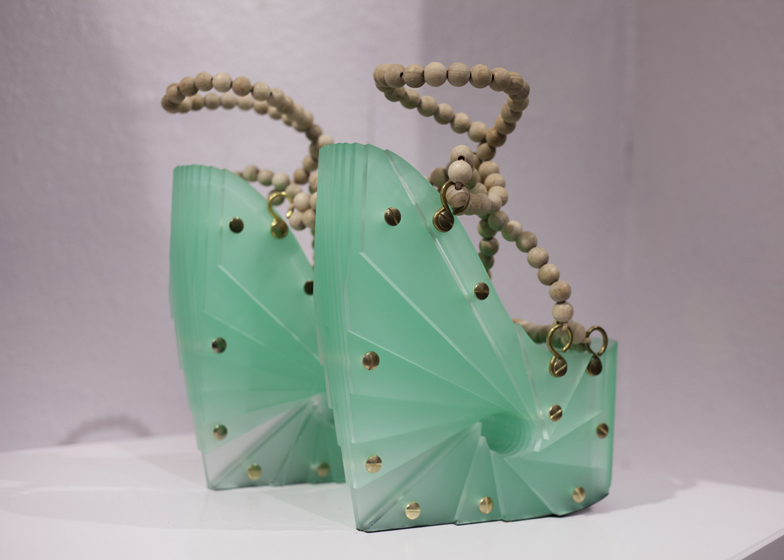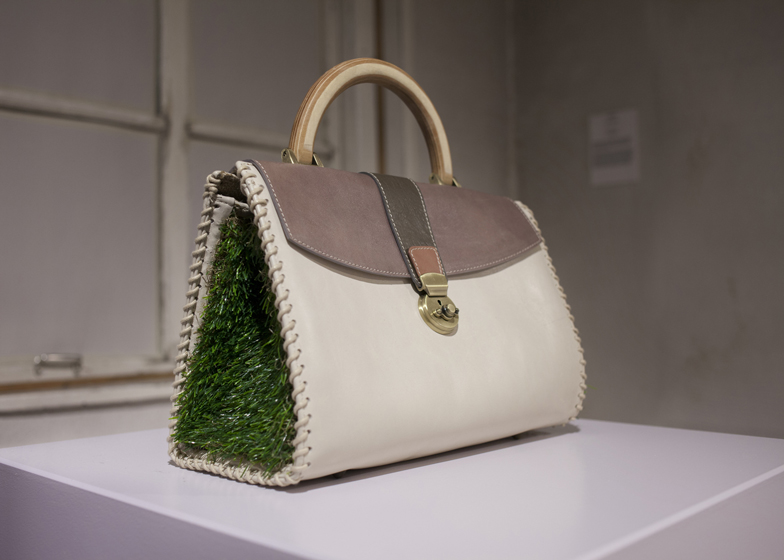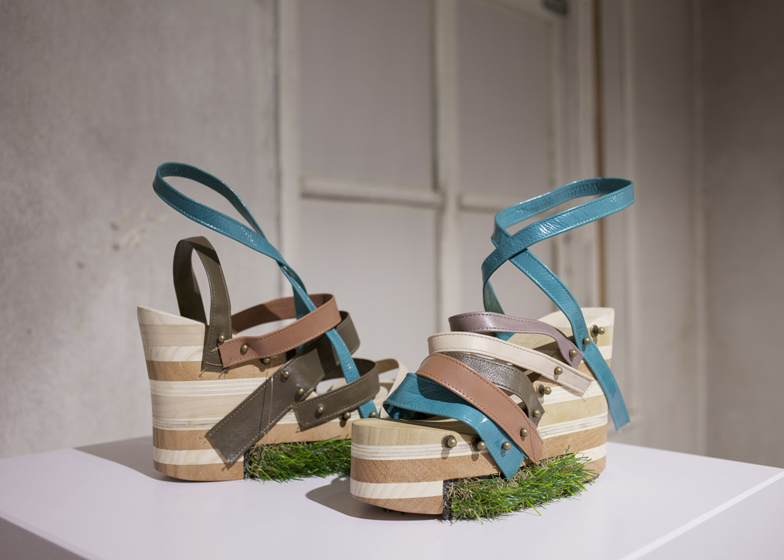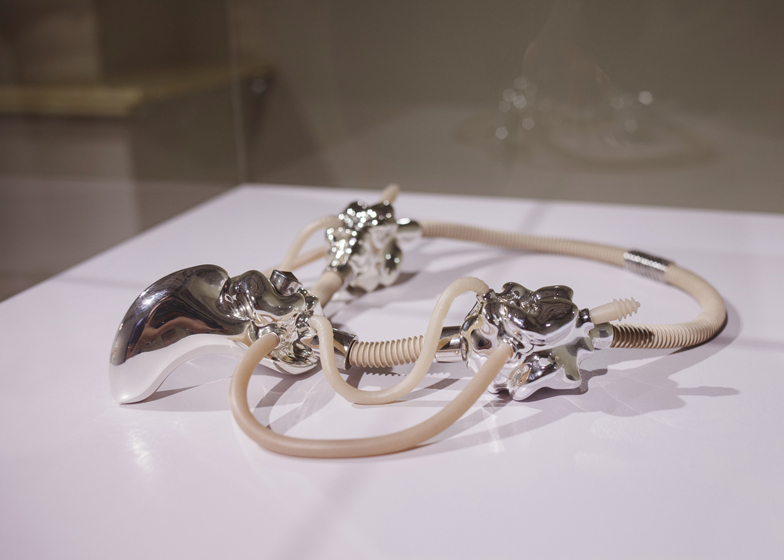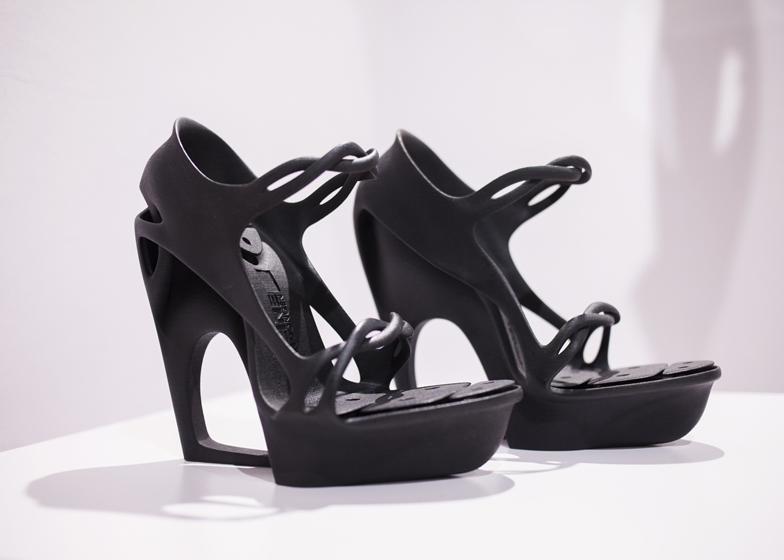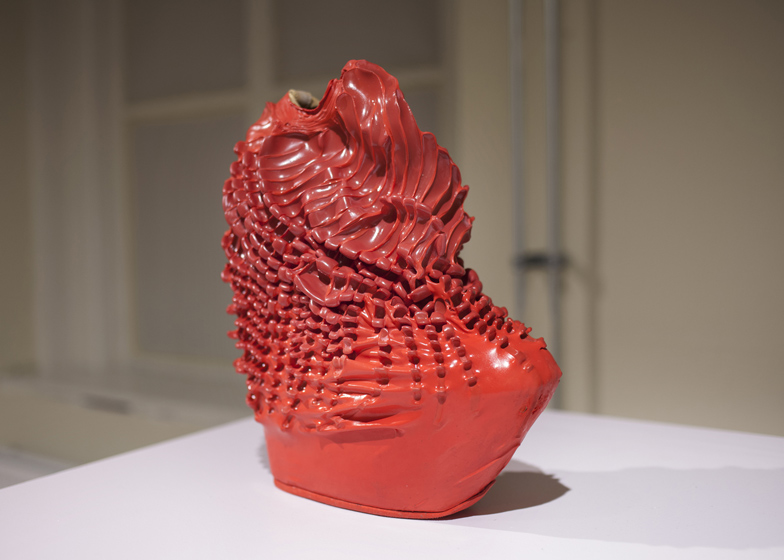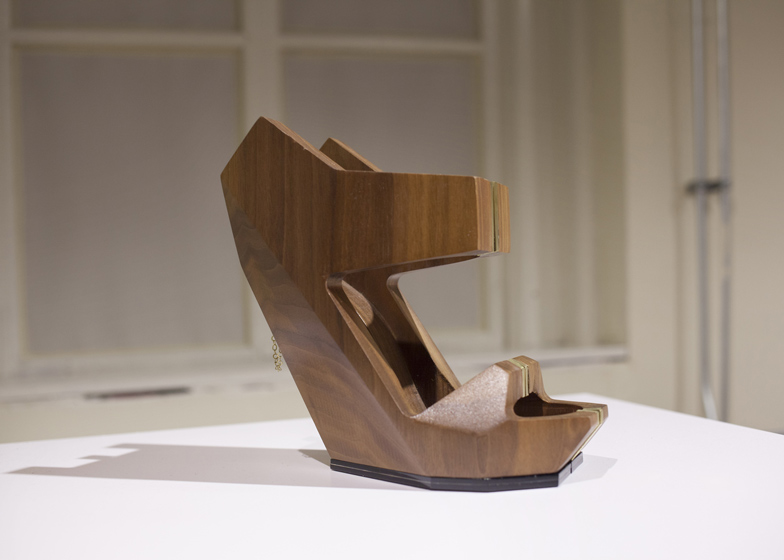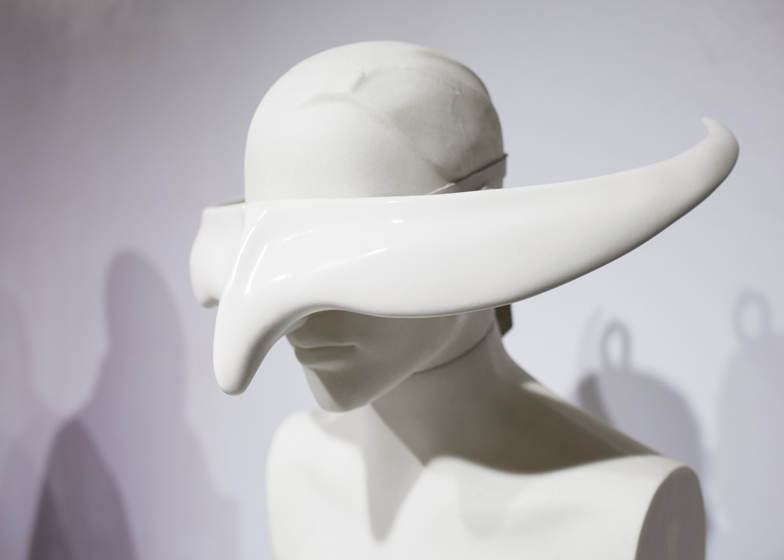Dutch Design Week 2013: from synthetic biology to 3D printing, technologies that could signal the future of fashion are demonstrated in garments and accessories at an exhibition in Eindhoven (+ slideshow).
For the Modebelofte 2013 Future Fashions exhibition, Eindhoven fashion store You Are Here and Amsterdam agency Glamcult Studio collaborated to select young fashion designers who have worked with technologists, to create experimental new materials or recycle old ones.
"We tried to make it about technology and innovation, as well as handcraft," curator Ellen Albers of You Are Here told Dezeen.
The range of projects on display was curated to show how different technologies can be applied to fashion design and textiles, plus adapted for other applications.
"[The exhibition is] an examination of what these new techniques can do for us, and how can we bring designers and companies together so that they can use the techniques for other kinds of things," said Albers.
Items on displays are split into two groups, one on each floor of a dilapidated former fire commander's house.
The ground floor contains pieces categorised as Revolutionary Innovations, which were created using processes such as 3D printing, laser cutting and moulding techniques.
These include body adornments based on exaggerated animal skeletons moulded from fibreglass, resin and silcone by Ana Rajcevic.
Cat Potter used 3D scanning technology to accurately map the contours of the foot to create the shape of the inners for her chunky wooden shoes, which clamp around the wearer's feet.
Royal College of Art graduate Maiko Takeda's prickly accessories made from hundreds of acrylic spikes are shown along with her classmate Xiao Li's plump pastel silicone garments moulded from knitwear.
On the first floor, the Hyper Crafts section displays exaggerated uses of traditional techniques such as pleating, knitting, embroidery and woodworking.
Jaimee McKenna's fully pleated Yves Klein blue garments and South Korean designer Minju Kim's clothes that feature melted, knotted and twisted rubber demonstrate these.
Barkfur, a synthetically-created biomaterial, is used by Danish designer Laerke Hooge Andersen to suggest how we could grow clothing directly onto the body in the future.
All the designers graduated in the last five years from institutions across Europe including the Royal College of Art and Central Saint Martins in London, the Royal Academy of Fine Arts in Antwerp and the Royal Academy of Art in The Hague.
This year's Dutch Design Week also featured a collection of heavy-duty garments made from tarpaulin and an exhibition of African-inspired textile prints.
The top prize at the Dutch Design Awards 2013 was awarded to Iris van Herpen's Voltage fashion collection, which includes 3D-printed garments. Future Fashions and Dutch Design Week continue until 27 October.
Photography is by Dirk van den Heuvel.

